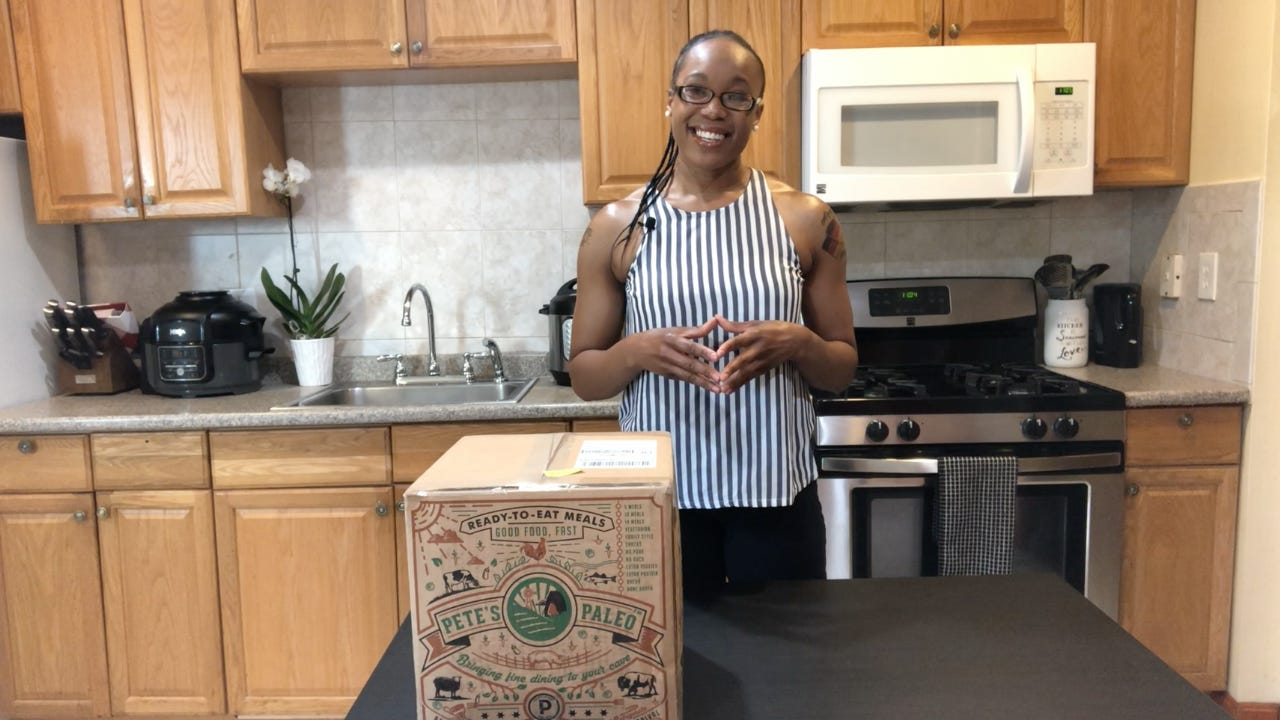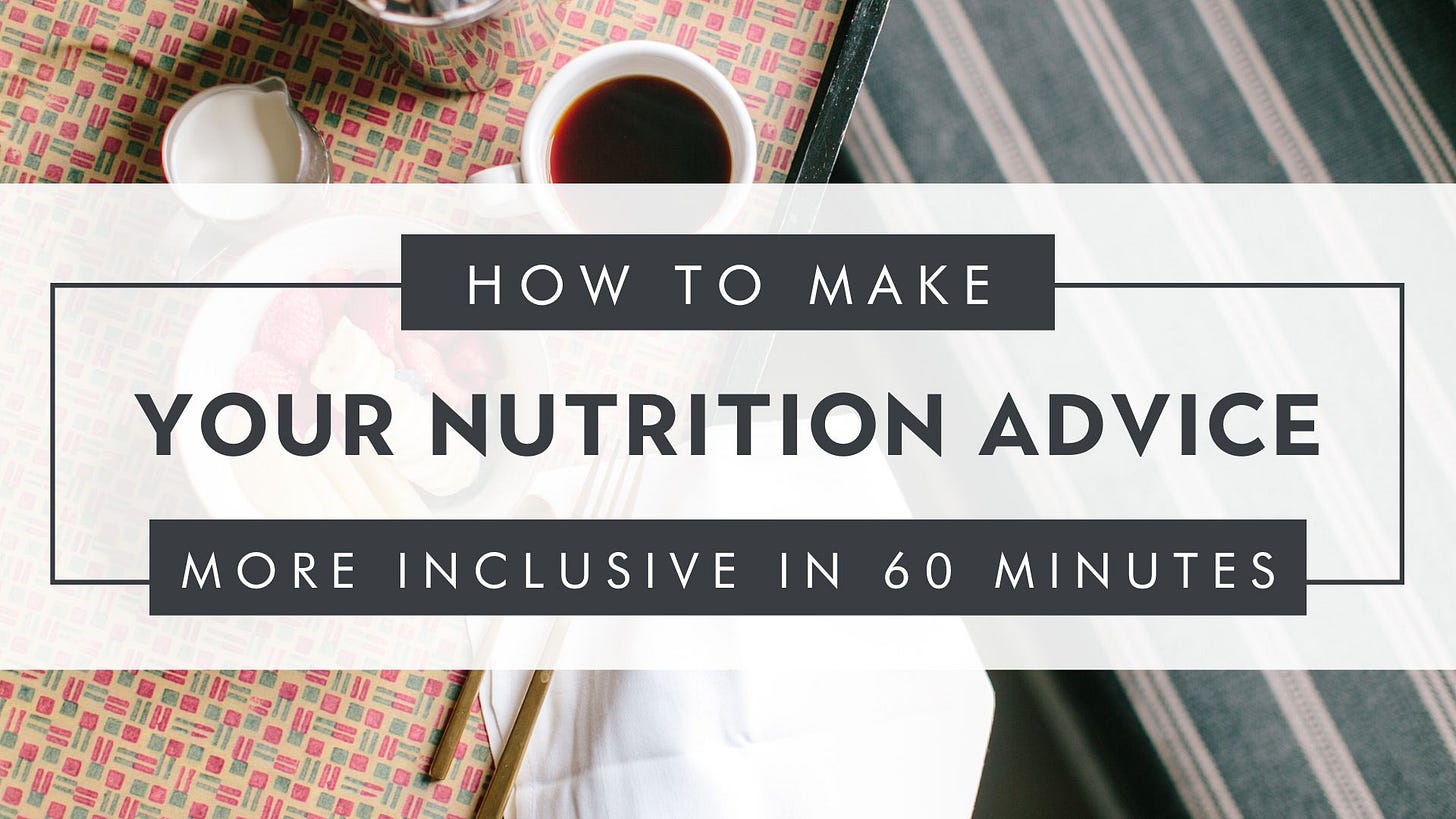Your Words Matter—Especially in Nutrition
How the way you talk about food can build or break trust with clients.
Did you know I used to have a cooking show? Back in the day, when Facebook Live was the place to be, I hosted a weekly live cooking show. Before you think that I was anywhere near Food Network quality, let me say, I was NOT.
Instead, live streaming me cooking dinner for the evening was a simple way to attract health coaching clients. One of those clients happened to be a woman named Julia who stumbled upon one of the meal planning segments of my show.
To be honest, I can cook, but I don’t enjoy cooking, so the cooking part of the live show was short-lived.
However, it did help clients like Julia find me. She wanted to work with me even though she’d been following and vetting a dozen health coaches who were far more credentialed than I.
When I asked why, her response was simple: She wanted to work with someone with a similar cultural background. She also appreciated how much I integrated our cultural foods into my meals.
👉🏽 That moment reminded me that how we talk about food will either welcome people in or push them away.
Since entering the health and wellness space in 2016, I've noticed that clinicians, coaches, and educators tend to push more people away than they intend. And it’s rarely intentional.
Instead, many health professionals simply aren’t trained in culturally relevant teaching. As a result, they tend to dismiss a client's or patient's cultural identity when providing nutritional recommendations.
For instance, my client Julia grew up and lives in the southern part of the United States. My grandparents lived in the South before migrating to the North during the Great Migration, so our family maintained many Southern food traditions.
When Julia and I worked together to create her nutrition plan:
I was able to make culturally relevant recommendations.
I wasn’t suggesting foods that she wasn’t used to eating.
I wasn’t telling her foods she needed to avoid or foods she had to replace.
Instead, we co-created her nutrition plan based on what worked for her and her husband's dietary preferences and lifestyle. In other words, she was committed to the process because I ensured she actively participated.
As I’m relearning in my Master Health Coaching certification with Precision Nutrition, taking a client-centered approach enabled me to focus on Julia’s individual needs, values, and goals. As a result, she could implement dietary change not just during our time working together but long after our coaching sessions ended.
And, let me say this so there is no confusion.
While I’m glad Julia had the opportunity to work with someone who shared her cultural background, that isn’t always going to be the case. I have worked with many people in my lifetime who don’t share my cultural background. In those situations, it’s even more important for health professionals to understand how to be inclusive with their nutritional recommendations.
That’s why I created this free masterclass:
How to Make Your Nutrition Advice More Inclusive in Just 60 Minutes (Without Reinventing Your Whole Approach) comes during many changes in the U.S. healthcare system. I believe it’s even more imperative that health professionals reframe how they talk about health.
It’s not enough to give me one-size-fits-some plans. It’s time to have real conversations that:
✔️ Ensures nutritional recommendations don’t come off as judgmental or rigid
✔️ Give space to have open dialogue that sparks trust, not shame
✔️ Affirm the cultural identities of the people we work with, not just erase it
📝 Grab your seat here: https://www.enhanceblackwomenshealth.com/masterclass
If you’re a clinician, coach, or educator, I’m not telling you that you have to change everything. However, there are some small tweaks you might need to make to ensure that you’re nutritional recommendations are relevant to the diverse cultures you serve.
With care,
Tomesha
P.S. When you show up live, you’ll get: 🎁 5 Phrases to Replace in Your Nutrition Advice Today, an easy, actionable guide to help you communicate with more care and cultural awareness.




